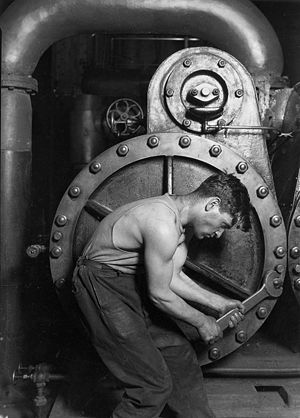In her New York Times article “The Declining Demand for Men”, Nancy Folbre says there is something that makes this recession unique for men:
The Great Recession has sometimes been dubbed the Mancession because it drove unemployment among men higher than unemployment among women. Because men tend to work in more cyclical industries than women, they have historically lost more jobs on the downturn and gained more on the upturn.
Positions in the fastest growing professions—registered nurses and home health aides—are filled mostly by women. Men are behind the job curve. This recession might be doing more to change masculinity than any social movement. As men, we are being squeezed out of the male professions and pushed into the feminine professions. We are being forced to change.
There are men in my men’s groups studying to be nurses and therapists. These are men who lead stereotypically masculine, outdoor lives—men who hike, camp, hunt, fish. But they neither can nor want to continue doing (professionally) what they have always done.
So what is “man’s work”? Is this recession “femininizing” men? Are we turning the macho into the misses? Some would say we are. I suspect the recession is, at least in part, teaching us not be so attached to our macho identity. For more than a century, men have based their masculinity on physical power, endurance, and a denial of all the consequences of focusing on masculine force. We have sacrificed our bodies and our lives to build this country in the mines, factories and fields. We accepted it as a given. In fact, we glorified the sacrifice.
Maybe this change is not all bad. Regardless of the outcome, men are again sacrificing. The accomplishment of more women graduating from college and graduate school, then retaining higher-paying jobs than men, is more proof that, as men, we are losing our lead. We are slowly relinquishing our control of the job market. In the past being a white man was a guarantee for work. That is no longer a given—nor should it be.
We are being forced to grow up. We can’t just be white and have a body that functions to get work. We need to be educated. We need to step off the construction site and into the hospital if we want to work.
Losing a job (or even the threat of losing a job) is devastating for a man. Of course, it is for a woman, too, but the ego hit for a man only makes it harder. We aren’t used to being at the mercy of change; for generations, we believed we were causing it.
So what do we do?
We change. We mourn the loss of our past. We do what men do well: we get to work. This time it’s on us. We need to really see what is happening and will continue to happen. If we are in a profession that is shrinking, we need to look at leaving it. And, we ask for help—maybe the most difficult part of the process. We learn new skills. We learn a new definition of what it is to be a man. We redefine ourselves and our masculinity. We co-create The New Masculinity™.
Let’s use the chaos of this recession to redesign who we are and our entire country. Let’s get honest—a lot of the work we have done is not safe, rewarding or fun. We did it because our fathers did it. We did it because it was the easiest job to fine. We did it because our buddies were doing it. This recession is teaching men not to be working robots. It’s teaching us to ask questions, think, and make new choices.
I know all this is tough. So get the support you need to do what you need to do. And be proactive; if you hate your profession, look around and really think about how you want to spend your days. Take action before you have no choice. Don’t wait until you’ve been laid off to figure out what you want to be when you grow up.
When it comes to your identity as a man, what are you losing in this recession?
